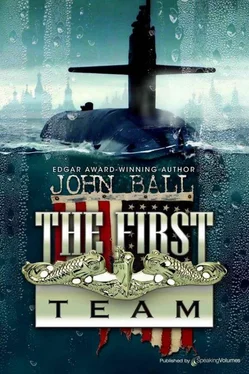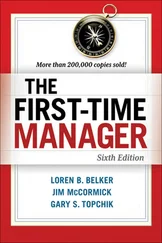Джон Болл - The First Team
Здесь есть возможность читать онлайн «Джон Болл - The First Team» весь текст электронной книги совершенно бесплатно (целиком полную версию без сокращений). В некоторых случаях можно слушать аудио, скачать через торрент в формате fb2 и присутствует краткое содержание. Год выпуска: 2013, Жанр: Триллер, на английском языке. Описание произведения, (предисловие) а так же отзывы посетителей доступны на портале библиотеки ЛибКат.
- Название:The First Team
- Автор:
- Жанр:
- Год:2013
- ISBN:нет данных
- Рейтинг книги:5 / 5. Голосов: 1
-
Избранное:Добавить в избранное
- Отзывы:
-
Ваша оценка:
- 100
- 1
- 2
- 3
- 4
- 5
The First Team: краткое содержание, описание и аннотация
Предлагаем к чтению аннотацию, описание, краткое содержание или предисловие (зависит от того, что написал сам автор книги «The First Team»). Если вы не нашли необходимую информацию о книге — напишите в комментариях, мы постараемся отыскать её.
Student protesters are being slaughtered in the Midwest.
The Jewish pogroms have begun.
You are now living in Soviet — occupied America!
One nuclear submarine and a handful of determined patriots against the combined might of Russia and Soviet-occupied America… The Most Explosive and Gripping “What If” Novel of Our Time!
First published January 1971
The First Team — читать онлайн бесплатно полную книгу (весь текст) целиком
Ниже представлен текст книги, разбитый по страницам. Система сохранения места последней прочитанной страницы, позволяет с удобством читать онлайн бесплатно книгу «The First Team», без необходимости каждый раз заново искать на чём Вы остановились. Поставьте закладку, и сможете в любой момент перейти на страницу, на которой закончили чтение.
Интервал:
Закладка:
“Probably not,” Scott agreed. “Percentagewise, it wouldn’t be worth it. But let it be a dutch treat; I’d like it better that way.”
The symphony paused in midflight as the movement ended and a few seconds of silence followed while the announcer turned over the record. Then the familiar work resumed once more.
“You’re still wearing your uniform,” Hewlitt said. “Do you think that’s a good idea?”
“Damn right. In the first place, no one’s told me not to, either them or my military superiors. Secondly, we’re in a time of war.” “Technically, the war’s over.” Hewlitt probed carefully.
“Not for me it isn’t. We haven’t officially surrendered, and unless I’m completely off, we’re not going to. Maybe you think that I’m a dreamer, but old Ho Chi Minh, who’s roasting somewhere in hell right now, beat the French and even gave us a hard time in a limited action.”
“Yes, but he had both communist China and Russia behind him at the time.”
“True, but what were his resources otherwise? We’ve got resources, and I’d like to think that we have some people with brains and spirit.”
Hewlitt looked across the room to where a clock rested on the mantel. “How about getting something to eat?” he proposed. “We can talk better sitting down. The place is usually pretty uncrowded at this hour, we ought to be able to be strictly by ourselves.”
“Fine, let’s go. I haven’t had any Chinese food in months.”
Hewlitt lingered for another two or three minutes hoping that his phone would ring, but it remained inert. Then he ushered his guest out and fell in beside him for the short walk to the restaurant. By unexpressed common consent, they kept their conversation entirely neutral.
They were received upon arrival by the same quiet headwaiter who, without being asked, showed them to a booth which offered a maximum of privacy. He put down two menus, wished them a pleasant dinner, and left without further comment.
They were well into their meal before Scott brought up the thing that was on his mind. “Look,” he began, “I’m going on the assumption, and I consider it a damn safe one, that you’re a solid citizen. I have the word that you were tapped by Zalinsky to sit at his right hand, but that you never bent an inch in his direction.”
“I’ve tried not to,” Hewlitt said.
“All right. Now just for the sake of argument, suppose that a bunch of Americans who don’t have any ax to grind apart from the fact that they are loyal to their country and what it used to stand for were to try to organize something. How would you feel about that?”
Hewlitt already knew what he was going to say when that question came. “I’d certainly wish them well; that goes without saying. At the same time I’d have to regard it as a damn dangerous game. Basically we can’t get away from one thing: we had our whole Air Force, plus the Army, the Navy, and the Marine Corps. With all of this, and our whole industrial capacity completely at our disposal, we took a licking. How can we hope to reverse all that by, say, an underground guerrilla organization?”
Scott was thoughtful. “We weren’t licked, Hew, you know that; we were tricked. The Orberg decision took away the power of the draft while all kinds of people kept telling us that patriotism was out of date and that we were fools to salute when the flag went by. Remember Wattles, the black militant? He eventually went to prison, but not for his basic crime — trying to tear down his own nation. And there was old stonehead — Fitzhugh. Perhaps we had too much freedom — and we abused it. Abused it enough to con ourselves right out of our security; all that they did was to take advantage of our weakness. Granted that they helped it along with their undermining, bugging, and all that.”
“It’s your thought, then, that if an underground were to be organized, it would be able to operate without all of these drawbacks?”
“Of course, but that’s only a small part of it. We’ve got an immense country here and a couple of hundred million people who don’t like the way that things have turned out. They’re bound to do something eventually.”
Hewlitt pushed his plate aside. “I’ve got to agree with that,” he said. “Only I’m afraid that they could get terribly hurt in the process.”
“True,” Scott responded. “Probably a lot of people would be shot as Bob Landers "was, but that’s the price we’re stuck with for having let our guard down.”
He stopped when the waiter approached the booth. The man cleared away the used dishes, wiped the table, and set down a fresh pot of tea. In front of each of them he put a tiny plate with a fortune cookie and then withdrew.
Hewlitt had used the time to think. He had no intention of revealing to Scott even by the vaguest hint that such an organization did, in fact, exist, but he did not know how to break off the conversation without committing himself in one way or another. He poured himself some fresh tea. As Scott did the same he broke open his fortune cookie and extracted the tiny slip of paper which promised to reveal his destiny. In red typewritten characters he read: Do not trust. Believe dangerous. Asher.
9
From the day that his supposed death had been made public, Admiral Barney Haymarket had been by his own order a literal prisoner in the underground complex of Thomas Jefferson. He longed to go outside, to walk for an hour through the rough mountain country, to drink in the beauty of the sky, the land, and the air; but remote as the region was, the chance existed that he might encounter someone who would recognize him or wonder who he was and what he was doing there. That minimal risk could be avoided at a cost; without a second thought the admiral paid the price. He was asking, and would ask, far more of others.
As a substitute he paid a daily visit to the little gymnasium which had been set up, took a rubdown, and, if he had time, spent a few minutes with a putter and two or three golf balls on the carpet in his quarters. The admiral had never done anything by halves; he applied that principle in working to improve his game. Each night he slept six or seven hours if the situation permitted; the rest of the time he was on duty, turning the full scope of his abilities onto the fiendishly difficult problem with which he was confronted. It was characteristic of him that he did not allow it to oppress him; he remained alert and confident, a skilled commander engaged professionally in the greatest campaign of his career.
At the admiral’s expressed wish the other members of the First Team also remained close to the operating base. He wanted an absolute minimum of traffic of any kind to and from the facility; when the time came to move he would approve it, until then secrecy had to remain as close to absolute as possible.
He had been extraordinarily careful about that. The blasting crews who had made the original excavation had also prepared several others which had been subsequently, listed as “abandoned.” A massive amount of paperwork had been prepared and planted in the classified files to indicate that the entire job had been part of another canceled project, given up after millions had been invested in its development. There were even more than two hundred letters on file in case anyone authorized or in a position to do so decided to go through all of the correspondence. Not far from the concealed entrance there was a landing strip made of natural materials and so artfully concealed that an unsuspecting hunter could walk right across it without being aware that it was there.
The entrance itself was camouflaged as an abandoned mine shaft crudely boarded up and with a warning sign which, while apparently badly weather-beaten, was still clearly legible. There were also some loose strands of barbed wire to discourage the inquisitive. If anyone persisted beyond this point, delicate and invisible electronic equipment would report his presence immediately.
Читать дальшеИнтервал:
Закладка:
Похожие книги на «The First Team»
Представляем Вашему вниманию похожие книги на «The First Team» списком для выбора. Мы отобрали схожую по названию и смыслу литературу в надежде предоставить читателям больше вариантов отыскать новые, интересные, ещё непрочитанные произведения.
Обсуждение, отзывы о книге «The First Team» и просто собственные мнения читателей. Оставьте ваши комментарии, напишите, что Вы думаете о произведении, его смысле или главных героях. Укажите что конкретно понравилось, а что нет, и почему Вы так считаете.












